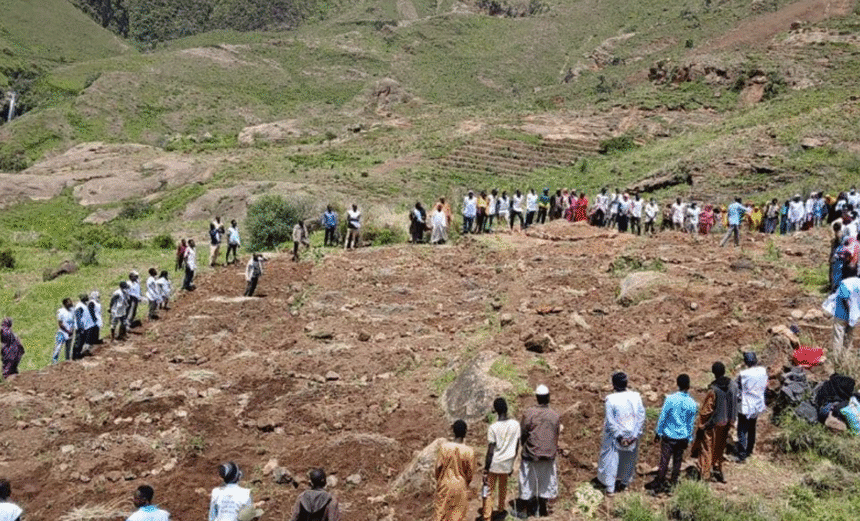Sudan, a nation long scarred by famine, civil war, and relentless violence, faces yet another heartbreaking tragedy. In the Marra Mountains of western Sudan, a catastrophic landslide has claimed the lives of more than 1,000 people, leaving only a single survivor. This disaster, striking amid weeks of heavy rainfall, underscores the vulnerability of a population already at their worst by decades of conflict, displacement, and hunger.
On the night of August 31st, the village of Tarasin in the Darfur region was completely obliterated when a massive landslide tore through the area. The Sudan Liberation Movement(SLM), which controls parts of the region, reported that nearly all residents of the village had been lost, with only one person surviving. “Initial information indicates the death of all village residents, estimated to be more than 1,000 individuals,” the SLM said, urging the United Nations and international aid agencies to assist in recovery efforts at the earliest.
Footage shared by local media depicted a flattened landscape between the mountain ranges, with teams desperately searching for bodies amidst the rubble. Luca Renda, the UN humanitarian coordinator in Sudan, expressed deep sorrow at the disaster, estimating that between 300 and 1,000 people may have died and announcing that the UN and its partners are mobilizing to support affected communities.
For the residents of nearby villages, the tragedy is almost unimaginable. Al-Amin Abdallah Abbas, a farmer from the cluster of villages including Tarasin, described the disaster as “unprecedented” and said that tribal and community leaders had organized efforts to recover and bury victims. “The village and its people disappeared,” he said, capturing the scale of the loss.
Sunday’s landslide ranks among Sudan’s deadliest natural disasters in recent history. The country has long struggled with seasonal rainfall, which claims hundreds of lives every year. However, the current catastrophe is worsened by the ongoing civil war. Fighting between the Sudanese army and the paramilitary Rapid Support Forces, particularly in Darfur’s El Fasher region, has created one of the world’s worst humanitarian crises. Famine has been declared in parts of the region, and the Marra Mountains have become a refuge for displaced families fleeing conflict.
Darfur’s army-aligned governor, Minni Minnawi, called the landslide a “humanitarian tragedy that goes beyond the borders of the region” and appealed for urgent international assistance. Mahmoud Ali Youssouf, chair of the African Union Commission, urged the warring parties to halt hostilities and allow aid to reach those in need.
The situation is dire. Much of Darfur remains inaccessible due to ongoing clashes, limiting the delivery of critical humanitarian aid. Thousands have died, and millions have been displaced by the war, including around four million from Khartoum alone. Atrocities, including ethnically motivated killings and sexual violence, have been reported, with the International Criminal Court investigating possible war crimes and crimes against humanity.
As Sudan mourns this latest catastrophe, the landslide in Tarasin is a grim reminder of the fragile existence faced by millions in a country beset by violence, famine, and natural disasters. For a people long forced to endure unimaginable hardships, the question remains: how much more can Sudan bear?















